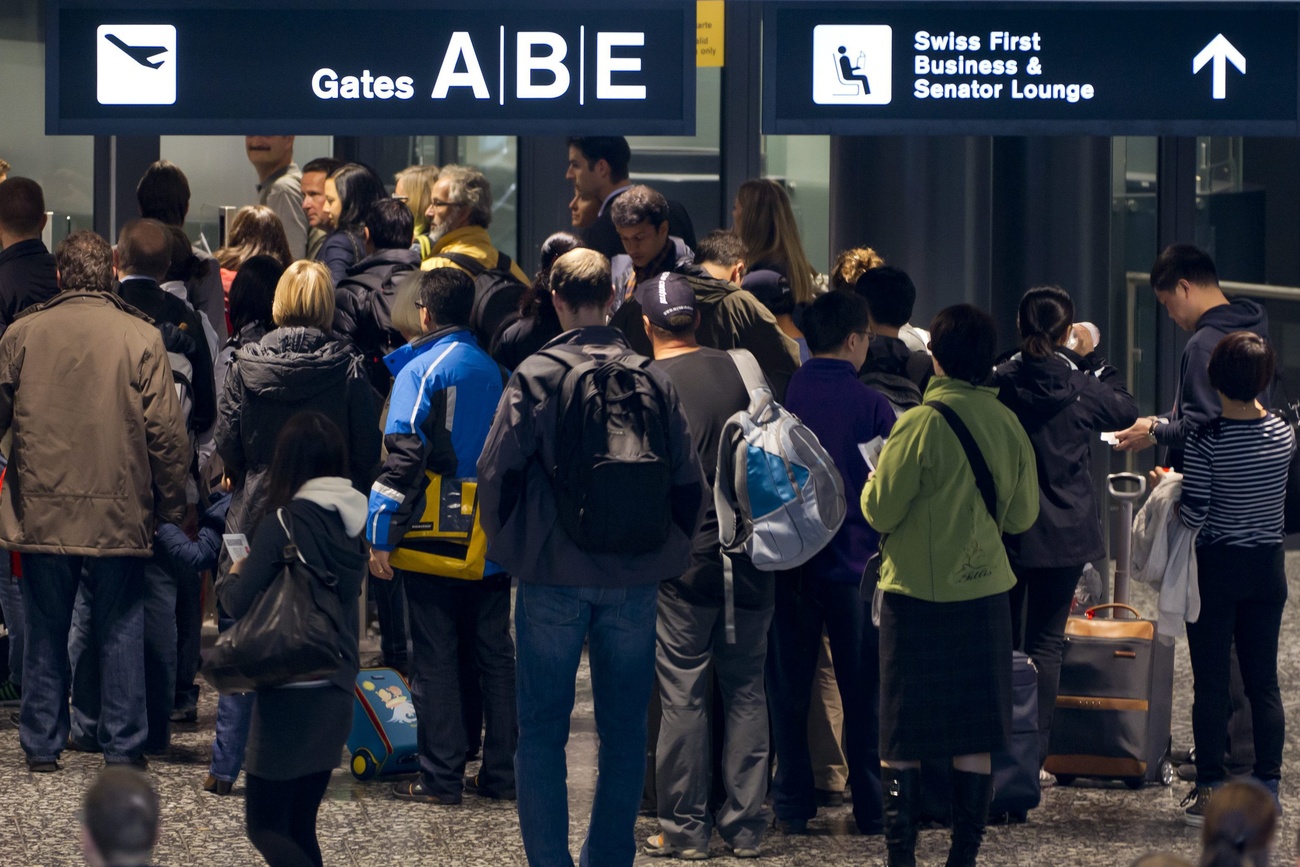

The Week in Switzerland
Dear Swiss Abroad,
Welcome to our selection of some of the biggest – and most colourful – stories in Switzerland over the past seven days.
As the snow melts and mountain passes re-open, is the political path between Switzerland and the European Union also becoming clearer? The form of a vote on a Swiss-EU deal is currently making headlines.
Also this week we look at why almost 100,000 foreigners leave Switzerland each year, whether a massive power outage could happen here, and this year’s Labour Day demonstrations.

Who are the 90,000 or so foreigners who leave Switzerland every year – and why do they go? New data obtained by SWI swissinfo.ch helps shed light on this outbound movement.
The high immigration figures for Switzerland – around 150,000 people move here every year – make it easy to forget that not everyone stays. My data journalist colleague Pauline Turuban crunched the numbers and has written a fascinating analysis.
The article, which has been picked up by several Swiss media outlets, answers the big questions, including: How long do people stay on average? Are foreigners less likely to settle in Switzerland than in other countries? Why do people leave Switzerland and return home?

The proposed deal between Switzerland the European Union (EU) should be decided by a simple majority of voters at the ballot box, without the need for a cantonal majority, the government recommended on Wednesday.
The so-called optional referendum on international treaties signals “political continuity and coherence and gives parliament and the cantons room for manoeuvre”, the government said.
“In other words, the government wants to set the hurdle for the treaty package as low as possible because it wants to get the treaties successfully through the referendum,” said Swiss public television, SRF, suggesting that Donald Trump’s tariff war was making the Swiss government recognise the importance of reliable relations with the EU.
Opponents are currently gathering signatures to force a public vote which would require both a majority of voters and cantons.
“It is shocking to see the extent to which our direct democracy is being undermined,” declared Thomas Aeschi, leader of the parliamentary group of the right-wing Swiss People’s Party. Other parties didn’t have a problem. Social Democrat Eric Nussbaumer tweeted that all agreements concluded to date with the EU have been subject only to a majority vote of the people.
Parliament will have the final say on the mode of referendum used to decide the issue.

A large-scale power outage like the one which caused chaos in Spain and Portugal on Monday is also possible in Switzerland. Such a blackout doesn’t necessarily have to originate within the country’s borders – it could also be caused by incidents abroad, according to one expert.
“Disruptions in the Balkans or Spain are also felt in the rest of Europe,” said Leonard Schliesser, researcher for the protection of critical infrastructure at the federal technology institute ETH Zurich.
The decisive factor in a blackout is the duration, he told Swiss public radio, SRF. If the power goes out for longer than 72 hours, it becomes precarious for the population. However, this happens extremely rarely. In Switzerland, the average person was without power for just 18 minutes in 2023.
The government considers a blackout to be one of the most serious threats to the Swiss population, Nick Wenger at the Federal Office for Civil Protection, told Swiss public radio, RTS. The authorities will prioritise the problems, starting with technical services and electricity suppliers, he said, but every household has a role to play by keeping an emergency store of various items: a battery-operated radio, candles, a gas stove, a supply of water (nine litres per person), non-perishable food to last at least a week, and cash.

More than 20,000 people demonstrated at May Day/Labour Day rallies across Switzerland on Thursday.
At more than 50 events, left-wing politicians and trade unionists called for more solidarity. There were isolated incidents of damage to property on the fringes of events.
According to the organisers, 14,000 people took part in the official May Day procession through Zurich. In Basel nearly 3,000 people gathered under the slogan “Solidarity rather than hatred. Unity is strength”.
In Geneva almost 500 people gathered on the Place des Nations to denounce the austerity measures affecting the entire United Nations system. “Reducing the number of UN staff means reducing the means of survival for the fight against famine, for education and for displaced families,” said Ian Richards, president of the UN staff union in Geneva.

The week ahead
With the glittery Eurovision curtain set to go up in Basel on May 13, on Monday morning the local police and rescue services will explain how they will be overseeing the event.
How well protected is Switzerland from cyberattacks? On Tuesday the National Cyber Security Centre will publish its latest report.
Thursday sees the launch in Bern of a national drought early detection and warning system.

In compliance with the JTI standards
More: SWI swissinfo.ch certified by the Journalism Trust Initiative




























